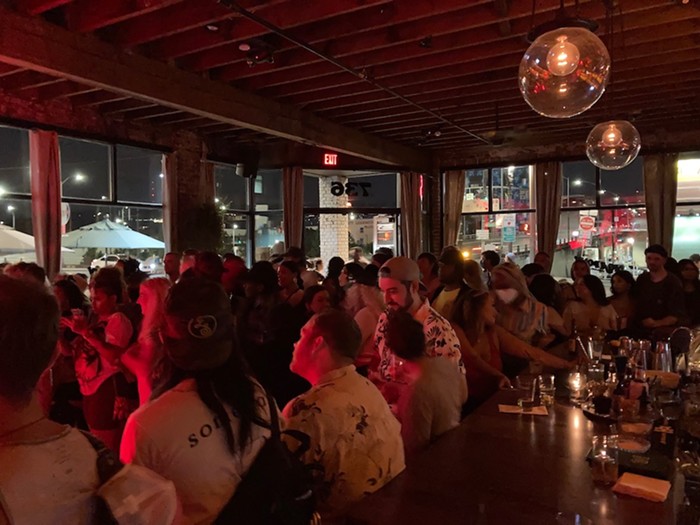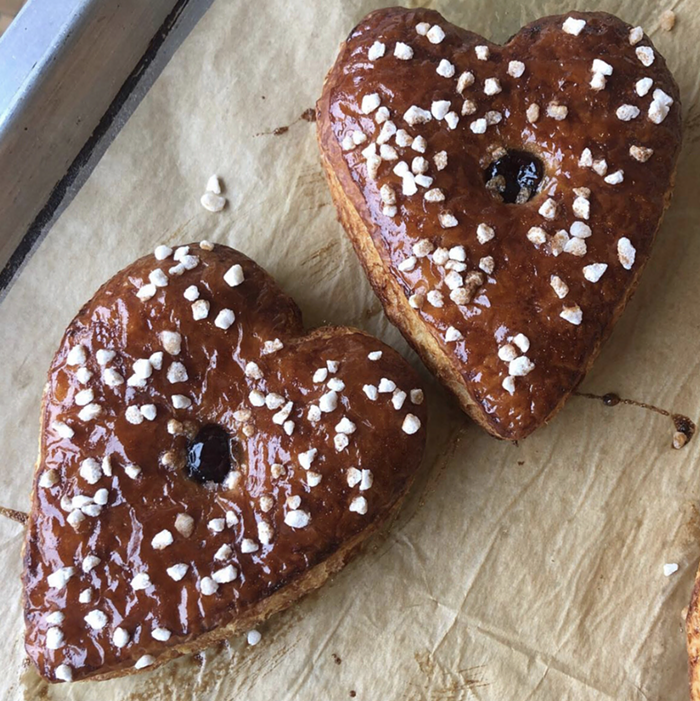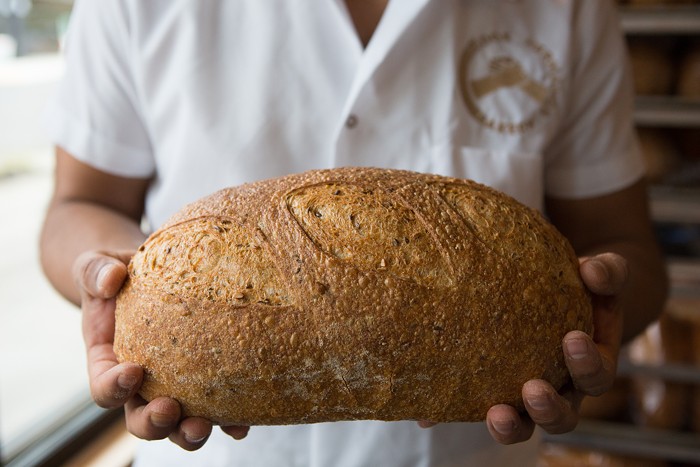THE NEXT TIME you take a sip of wine, consider what's inside. Grapes and yeast, for sure. But possibly egg whites, milk products, gum arabic, gelatin, fish bladders, enzymes from animal stomachs, sugar, water, sawdust, and a host of hard-to-pronounce chemicals. These additives are used to enhance flavor and color and to preserve the wine. They aren't all necessarily bad, but as both the US and Europe don't require producers to list ingredients (except sulfites), you've no idea what's been used.
This opaqueness, and the belief that wine doesn't need heavy manipulation anyway, has seen a growing number of winemakers producing what are known as natural wines.There's no official definition of what a natural wine is—it's different things to different people, with all the heated conversation that can generate—but it starts with the idea that, in essence, winemaking is straightforward (yeasts convert grape sugars into alcohol) and the winemaker should intervene in this process as little as possible. Generally, natural wine is made in small quantities by independent producers. The grapes are probably organic, the yeasts wild, and much of the labor done by hand (and perhaps a horse). Additives are kept to an absolute minimum, though some producers will add sulfur to prevent the wine from spoiling.
"We put so much energy into our food and how it's grown, and we need to think of wine in the same way," says Dana Frank, wine director at Ava Gene's, who champions natural wines on her wine list. Just as Portlanders might know all about the provenance of the chicken they are eating, Frank believes there should be the same consideration for wine.
Gregory Cantu, who is co-hosting an upcoming natural wine bar pop-up, Puntxdown, agrees: "I think people are concerned [about] where their food comes from—wine can be considered produce and should be treated as such," he says.
There are obvious similarities with the farm-to-table movement, especially in the way natural wine producers seek to respect and maintain the land. Organic farming is important, but there's also a growing trend toward biodynamics, which is based on the work of the Austrian philosopher Rudolf Steiner in the 1920s. It's the ultimate in seeing agriculture as part of a living whole—not just ecologically, but taking into account the spiritual forces of the cosmos as well. It gets kooky—one preparation involves burying manure in cow horns over the winter and later digging up the contents to use on the soil (specifically in the afternoon). Wacky though it may be, there are big-name winemaker converts in France, Spain, and California due to perceived benefits to the soil and the quality of the wine.
The natural wine movement, which began in France in the 1970s (the wines then were dismissed as "hippie juice"), is gaining traction across Europe and the US. Frank's customers have been "super-positive," and she credits "hipsters" (and she means that in the nicest possible way), who want to try new and interesting things. It also helps that natural wines—particularly those from Europe—offer good value: They often violate the strict classification rules that grade European wines and so are labeled humble "table wine," no matter their quality.
So how do they taste? Generally, they are complex, and because they retain bacterias they often have an earthy barnyard quality. (Cantu admits that the rustic quality may not appeal to everyone.) One thing a natural wine should do above all else is express the grapes, soil, vintage, and place it comes from. Says Frank, "The greatest natural wines are not about the ego of the maker, but the patch of dirt and the grapes that are grown there."
Where to Try Natural Wine
Pop-up Puntxdown will offer a selection of European natural wine, priced individually. Coopers Hall, 404 SE 6th, Sept 13, 6 pm
Ava Gene's wine list consists mostly of Italian natural wine (Wine Director Dana Frank's favorite is a 10-year-old San Fereolo Dogliani). Ava Gene's, 3377 SE Division
Liner & Elsen wine merchants have a good selection of affordable natural wine. Liner & Elsen, 2222 NW Quimby
Local natural winemakers include Holden (which is run by Sterling Whitted, co-host of Puntxdown), available at Coopers Hall (404 SE 6th), and Bow and Arrow (whose winemaker is Dana Frank's husband, Scott), available from SE Wine Collective (2425 SE 35th Pl).
In the Willamette Valley, Beaux Frères (beauxfreres.com), Johan (johanvineyards.com), and Brick House (brickhousewines.com) vineyards practice biodynamic farming and make natural wines.



















